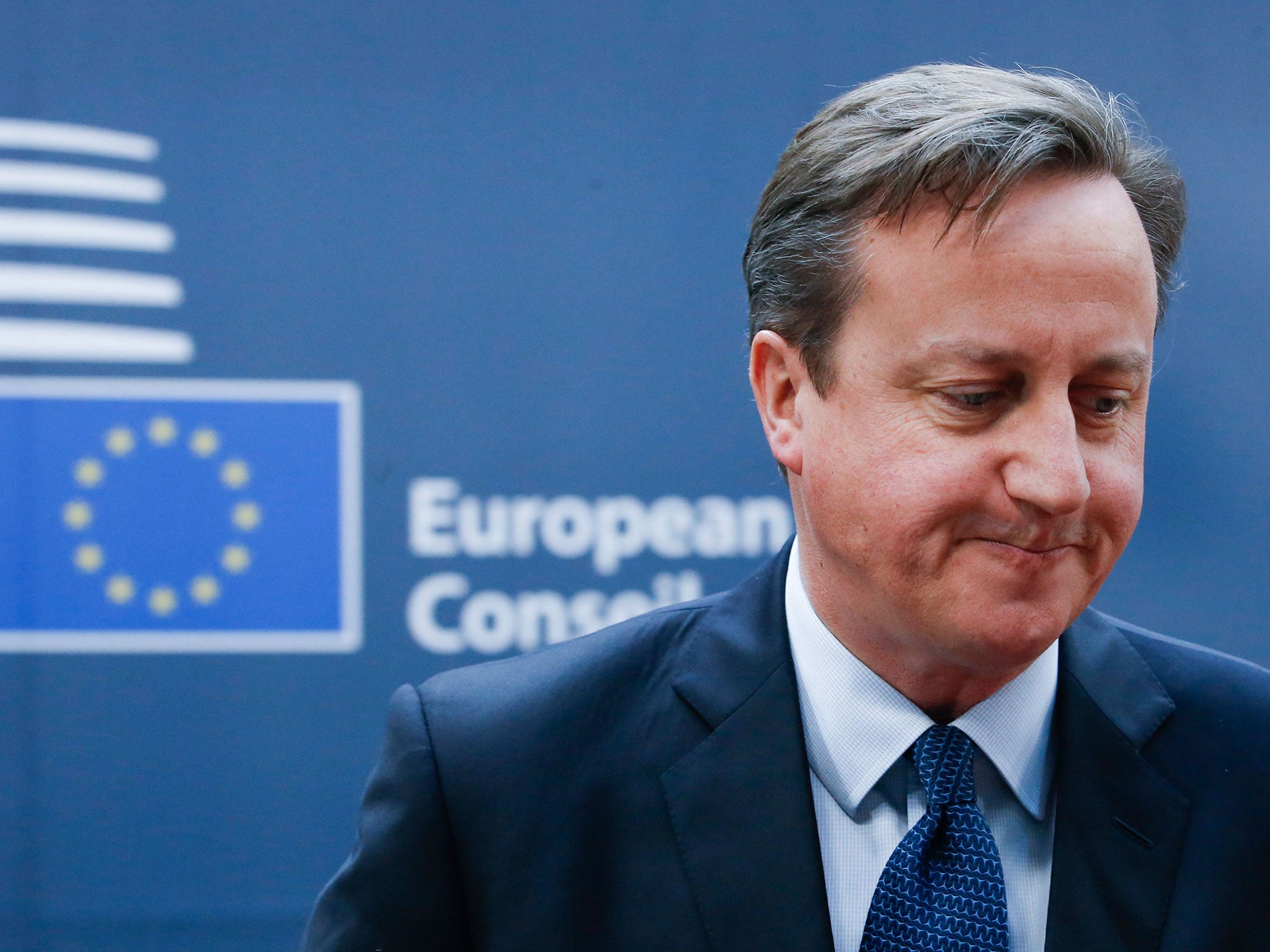David Cameron faces Tory rebellion over move to curb power of House of Lords
The Prime Minister is preparing to act following a succession of government defeats in the Lords

Your support helps us to tell the story
From reproductive rights to climate change to Big Tech, The Independent is on the ground when the story is developing. Whether it's investigating the financials of Elon Musk's pro-Trump PAC or producing our latest documentary, 'The A Word', which shines a light on the American women fighting for reproductive rights, we know how important it is to parse out the facts from the messaging.
At such a critical moment in US history, we need reporters on the ground. Your donation allows us to keep sending journalists to speak to both sides of the story.
The Independent is trusted by Americans across the entire political spectrum. And unlike many other quality news outlets, we choose not to lock Americans out of our reporting and analysis with paywalls. We believe quality journalism should be available to everyone, paid for by those who can afford it.
Your support makes all the difference.David Cameron is facing a Conservative rebellion over moves to curb the power of the House of Lords.
The Prime Minister is preparing to act following a succession of government defeats in the Lords, where Labour and Liberal Democrat peers substantially outnumber Tories.
Under proposals by the former Tory Cabinet minister Lord Strathclyde, new regulations would be passed to ensure MPs had the “final say” over secondary legislation. The issue came to a head in October, when peers blocked Chancellor George Osborne’s plans to cut spending on tax credits by £4.4bn. In response, Mr Cameron appointed Lord Strathclyde to review the powers of the Upper Chamber.
David Davis, the former minister, told the New Statesman that “at least a dozen” Tory MPs would oppose ending the veto. Downing Street said it would respond in the new year.
The Leader of the Lords, Baroness Stowell of Beeston, described its recommendations as “thoughtful and measured”. But Baroness Smith of Basildon, Labour’s leader in the Lords, argued: “All this paints a very unattractive picture of a Prime Minister and a government that will not tolerate challenge, that loathes scrutiny and fears questioning.”
Under the proposals, peers would be able to “invite the Commons to think again” over secondary legislation, changes implemented outside an Act of Parliament. But the Lords could then be overruled by a vote in the Commons.
Lord Strathclyde’s review said it preferred the solution over two other options: removing peers from the process altogether or clarifying the existing arrangements.
It said the vote on tax credits “broke new ground” because it disregarded the convention that peers did not block such moves.
Lord Strathclyde warned that the Upper Chamber must not be allowed to become “a highly politicised House of Opposition”.
Join our commenting forum
Join thought-provoking conversations, follow other Independent readers and see their replies
Comments